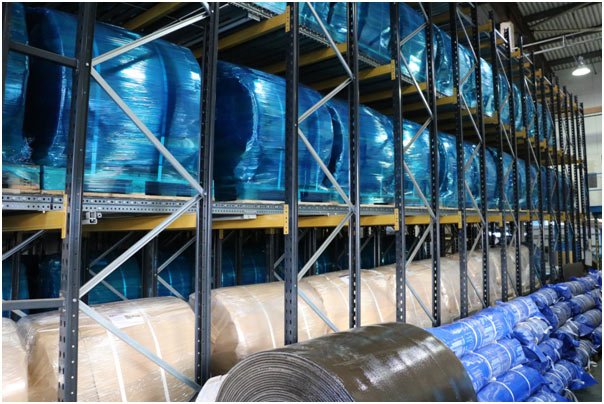How to manage expansion effectively
Published by Gbaf News
Posted on November 14, 2019
5 min readLast updated: January 21, 2026

Published by Gbaf News
Posted on November 14, 2019
5 min readLast updated: January 21, 2026

Developing export links is the goal for many businesses. While the advantages that can come from strong export links can be very beneficial to a business, there are some significant challenges which arise with the growth.
Before looking to develop exports, it should be stated that having a strong domestic foundation, regarding business operations and client bases, should make perusing exports much easier. It’s important to remember the costs which come from exporting your product and having strong local sales will make these easier to handle. Furthermore, being an established company with trading experience at home will make any ventures into overseas markets easier due to the knowledge your company has gained through trading domestically.
One company which has recently been recognised for its success in exports and overseas trade is the UK company Concrete Canvas Ltd. Based in Wales, the company produces ‘concrete on a roll’ with its concrete-filled fabric, which is significantly more environmentally friendly and time efficient than traditional poured concrete.
Due to Concrete Canvas’s highly successful export strategy, the company was awarded a 2019 Queen’s Award for Enterprise in International Trade. This is the second Queen’s Award won by the company, having previously been honoured with the award for Innovation in Enterprise in 2014.
International Business Development Manager for Concrete Canvas, Darren Hughes, believes the main challenge for the company is “to build in line with the ever-growing global demand for our products.” This growing demand is a result of the company’s ability to demonstrate the value of its product on a smaller scale initially, rather than starting with the immediate ambition to sell its product around the world.
For start-ups, like Concrete Canvas growing from the bedrooms of two university students in 2004, or SMEs, making sure that they establish themselves and have the infrastructure in place to meet export orders when they arrive is critical.
Marcin Kujawski, Quality and Material Research Manager for Concrete Canvas, stressed the importance of planning when exports start becoming a more significant aspect of any business. “We have planned carefully to make sure that we have secured all necessary resources such as raw ingredients, operators, quality control services, health and safety resources and space for the finished product,” Kujawski said.
Specifically, making sure the quality control of your company’s products is maintained is essential when it comes to exports. For a company such as Concrete Canvas, they need to be sure that if they ship an order of their fabric to Australia to be used in a channel lining project, when the product arrives on site there are no issues which could delay work. As such, the time and effort to ensure the quality of the product needs to be taken at the point of production. Clients receiving products they are not happy with, particularly in a sector such as civil engineering, could result in substantial additional costs for all involved and damage future export opportunities.

Once the production side of the business is operating at a level which can handle large scale exports, there needs to be a simultaneous effort to generate those export opportunities. According to Darren Hughes, Concrete Canvas achieves strong export links through understanding overseas client needs. A straightforward way in which they achieved this was by operating support systems in the same time zones as key customers. As such, Concrete Canvas now run six overseas offices and support over 50 sales partners. The result: in 2017-2018, around 80% of all material manufactured by the company was exported.
Company Director William Crawford referred to the work of the overseas sales partners following the 2019 Queen’s Award, saying the award was “a reflection of the hard work and dedication of everyone at Concrete Canvas as well as the fantastic network of international sales partners around the world.”
Hughes acknowledged that, when starting to explore the potential of the export market, it can be a “daunting proposition.” Some of the key challenges which face every company regardless of the product they produce or service they offer are the “differences in language, culture and certification requirements” Hughes said.
One way in which Concrete Canvas tackled some of these problems was by consulting organisations available to all businesses. Hughes explained, “there are a number of support services offered by government departments and agencies, such as the Welsh Government and Department for International Trade, which can greatly help in overcoming these initial challenges.”
Overall there are several key pieces of advice to take from Concrete Canvas’s success. Make use of the service on offer to businesses by governments and other organisations, ensure that the correct procedures and infrastructure are in place and have sales and support teams which understand and can directly respond to the needs of overseas clients. By building upon a strong foundation of domestic success, the benefits of exports can be significant in helping grow a business.
Author Bio:
Written by Concrete Canvas – producers of a unique concrete filled fabric which can be used in a large variety of civil engineering sectors around the world. More information can be found here.
Explore more articles in the Business category











